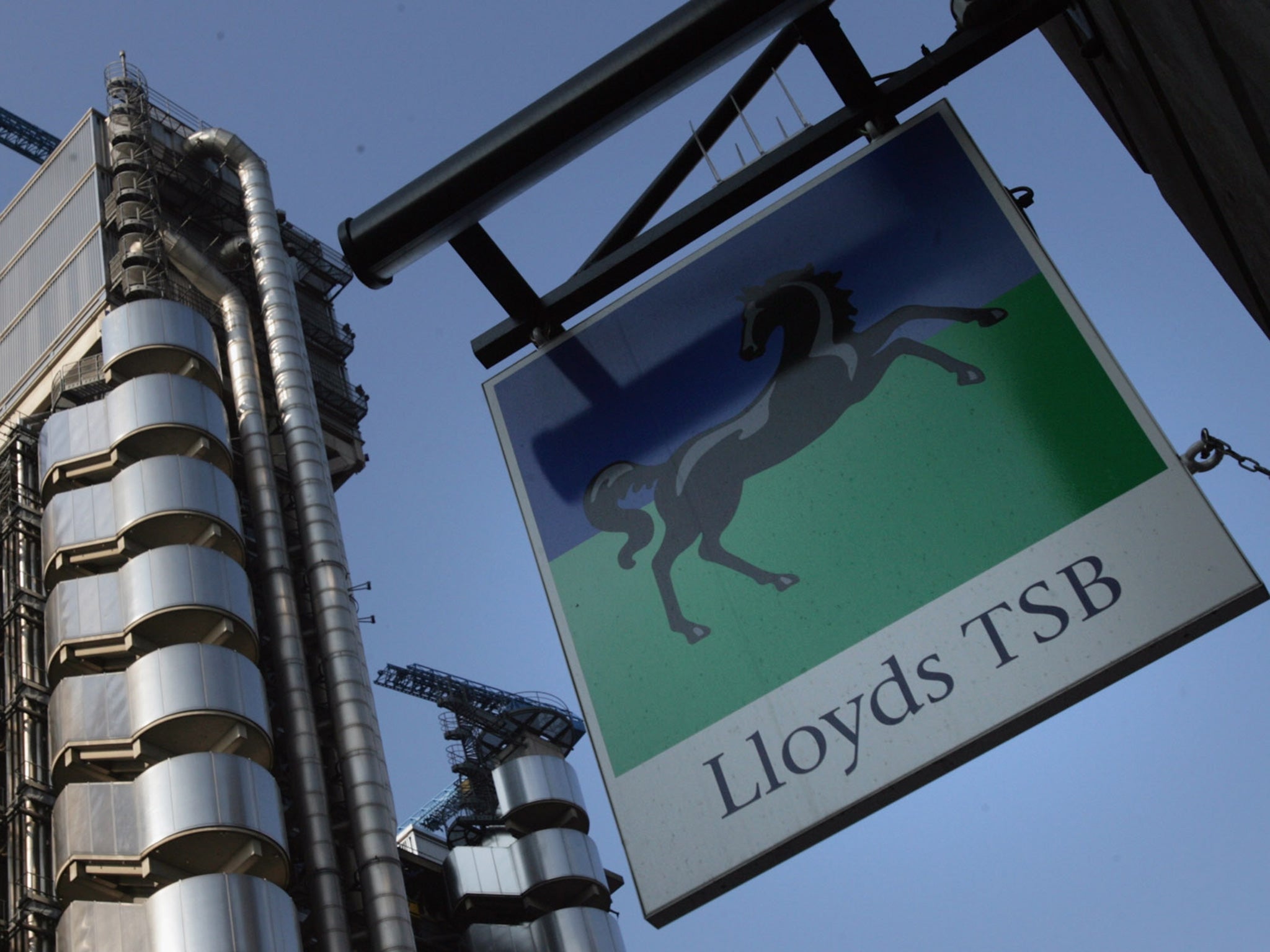Lloyds profits up 21% in first quarter despite £600m losses from TSB sale
State-backed lender reports profits of £2.2 billion

Lloyds first quarter profits were up 21 per cent in the first quarter of 2015 compared to the same period a year earlier, beating analysts expectations to hit £2.2 billion.
Losses were down 59 per cent from a year ago to 177 million, despite a £600 million loss from the sale of Lloyds’ 10 per cent stake in TSB to Banco de Sabadell this year. The charges were from a transitional service agreement and Lloyds’ contribution to helping TSB migrate to a different IT platform.
Lloyds was hit with costs of £85 million in dual running costs for TSB but it said there would be no further charges.
Statutory profit before tax – the bottom line of a company’s profit and loss after everything has been deducted – was £1.2 billion compared with £1.4 billion in 2014.
The UK government owns a 20 per cent stake in Lloyds, less than half its original stake in 2008, when it was forced to shore up the bank after the financial crisis. At that time, Lloyds, TSB and RBS had a total of £37 billion of taxpayers’ money pumped into them to stabilise the UK financial system.
António Horta-Osório, Lloyds Group chief executive, said progress had been made in making Lloyds’ operations simpler, lower risk and more consumer focussed.
He said that Lloyds provides one in four mortgages to- first-time buyers in the UK, lending £2.2 billion in the first three months of the year. In the last year Lloyds has lent £1.1 billion to SMEs, he added.
“We have delivered a significant improvement to underlying profitability and balance sheet strength while at the same time continuing to support and benefit from UK economic growth,” said Horta-Osório.
Subscribe to Independent Premium to bookmark this article
Want to bookmark your favourite articles and stories to read or reference later? Start your Independent Premium subscription today.

Join our commenting forum
Join thought-provoking conversations, follow other Independent readers and see their replies